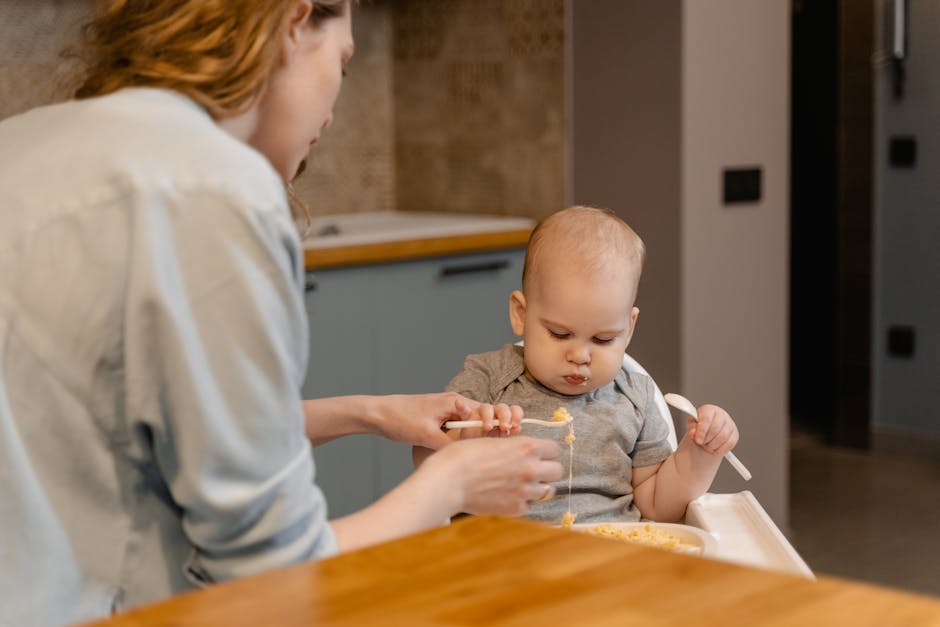Nurturing a child’s capacity for personal growth is a fundamental aspect of parenting. It’s a journey, not a destination, marked by a multitude of experiences and opportunities to learn and flourish. This exploration delves into diverse strategies to support children’s development, encompassing emotional well-being, cognitive skills, and social interactions.
A cornerstone of fostering personal growth is creating a supportive and nurturing environment. Children thrive in spaces where they feel secure, loved, and respected. This encompasses consistent routines, clear boundaries, and open communication. Predictability provides a sense of stability, allowing children to feel safe enough to explore their surroundings and develop self-confidence. Boundaries, while seemingly restrictive, offer structure and guidelines, helping children understand expectations and learn self-control. Open communication facilitates dialogue, enabling children to express their thoughts and feelings, fostering emotional intelligence. Active listening and empathy from parents are crucial in this process.
A crucial aspect of personal growth is encouraging children to embrace challenges. Overcoming obstacles, whether academic, social, or personal, strengthens resilience and builds self-efficacy. A nurturing approach to challenges is pivotal. Instead of instantly intervening, parents should guide children to explore solutions independently, offering encouragement and support when needed, but avoiding taking over. This approach instills a belief in their own capabilities, teaching them to persevere and learn from mistakes. Encouraging experimentation, even with potential failure, is fundamental. Providing a safe space to try new things, explore interests, and make choices even if those choices lead to errors fosters a growth mindset, essential for long-term personal growth.
Education, in its broadest sense, plays a significant role. This extends beyond academic learning. Exposure to diverse experiences, like extracurricular activities, cultural events, and interactions with people from different backgrounds, broadens perspectives and nurtures empathy. Encouraging participation in activities that spark curiosity, develop specific skills, or facilitate social interaction is invaluable. These pursuits cultivate a thirst for knowledge and a desire to explore beyond their immediate comfort zones. Children who are exposed to a variety of experiences often develop a more comprehensive understanding of themselves and the world around them.
Emotional well-being is inextricably linked to personal growth. Supporting children to manage their emotions is a critical component of this. Parents can facilitate this by teaching children to recognize, label, and express their emotions in a healthy manner. Providing tools for emotional regulation, such as mindfulness exercises or strategies for managing anger or frustration, empowers children to navigate their emotional landscape. Open discussions about emotions, modelling healthy coping mechanisms, and creating a safe space to share feelings are indispensable to this process.
Furthermore, fostering a strong sense of self-worth is essential. This involves recognizing and celebrating each child’s unique strengths and talents. Rather than focusing solely on achievements, it’s important to acknowledge effort, perseverance, and the journey itself. Encouragement, praise for effort, and celebrating milestones, big or small, contribute to a positive self-image. This sense of self-worth acts as a solid foundation for facing challenges and pursuing goals. Acknowledging and appreciating their contributions, however small they may seem, creates a significant impact on their self-esteem.
Cultivating social skills is another significant aspect of personal growth. Encouraging interactions with peers, fostering teamwork in activities, and teaching conflict resolution skills equip children to navigate social situations effectively. Opportunities for collaboration and communication with others enrich their social intelligence. Parents can create opportunities for children to develop social skills by organizing playdates, encouraging participation in group activities, and by modeling respectful and collaborative behaviours themselves. These interactions build valuable social competencies, crucial for success in later life.
In summary, nurturing personal growth in children is a multifaceted endeavor. It requires creating a supportive and nurturing environment, encouraging a growth mindset, fostering curiosity and a love for learning, promoting emotional intelligence, and building a strong sense of self-worth. Ultimately, parents play a crucial role in shaping children’s potential and empowering them to become well-rounded and resilient individuals. This process is a continuous journey of learning and adaptation, where every interaction and experience contributes to the tapestry of their growth.
